By Junaid Imdad, Blogger & Digital Experience Strategist
Email Marketing Strategies in 2025 are changing quickly to keep up with the ever-evolving landscape of digital engagement. While email continues to be one of the most reliable and cost-effective ways to build relationships, nurture leads, and drive conversions, its success now depends on how well marketers adapt to new technologies, shifting user behaviors, and increasing expectations.
In 2025, consumers are no longer content with generic mass emails or outdated templates. They want brands to anticipate their needs, communicate in a relatable way, and provide content that’s timely, relevant, and personalized. This shift means that static, one-size-fits-all email campaigns are fading into the background. Instead, brands need to harness AI-driven personalization, predictive analytics, and automated workflows that feel genuinely human.
Today’s email strategies include:
Hyper-segmentation, which uses behavioral, demographic, and psychographic data to customize messaging for each individual.
Real-time content customization, where product recommendations, subject lines, and even images change dynamically based on a user’s previous interactions or location.
AI-driven send-time optimization, ensuring emails land in inboxes when each subscriber is most likely to engage.
Interactive email design, featuring embedded surveys, gamification elements, countdown timers, and live polls that enhance engagement right within the inbox.
Moreover, privacy-first design has become a key focus. With regulations like GDPR and CCPA, along with growing consumer awareness, building trust is essential. Marketers must find the right balance between personalization and data responsibility, ensuring transparency about how subscriber data is utilized.
To thrive in 2025, email marketing needs to be strategic, personalized, and responsive—transforming from just a communication tool into a dynamic extension of your brand experience. The businesses that succeed will be those that view every email as a conversation, not merely a campaign.
Email Marketing Strategies 2025
As we dive deeper into the digital era, Email Marketing Strategies in 2025 are transforming into sophisticated, intelligent systems that focus on personalization, interactivity, and data-driven choices. The days of sending out generic newsletters or mass emails that barely engage anyone are long gone. Today’s consumers are sharp, discerning, and they expect every email to deliver immediate value and be relevant to their unique needs, preferences, and behaviors.
In this new environment, static campaigns just don’t cut it anymore. The key to modern email marketing success lies in seamlessly integrating AI-powered tools, behavioral insights, and automated workflows that react to user actions in real time. Brands are increasingly using dynamic segmentation to categorize audiences not just by basic demographics, but by subtle behavioral cues—like browsing history, purchase frequency, engagement patterns, and even sentiment analysis. These micro-segments enable the delivery of hyper-personalized content that feels more like a personal chat than a mass broadcast.
AI isn’t just about better targeting; it also elevates the creative side of things. From crafting optimized subject lines and predicting the best times to send emails, to customizing product recommendations and adjusting the tone of content based on the audience, artificial intelligence is fundamentally changing how email campaigns are designed and executed.
Additionally, real-time analytics and ongoing optimization are now central to effective strategies. Brands can A/B test countless variations at scale and quickly adjust their messaging based on performance metrics like click-through rates, engagement levels, or the time spent reading. Emotional intelligence and storytelling are becoming increasingly important, as successful brands aim not just for conversions but also for building long-term relationships through genuine, emotionally engaging content.
Whether you’re just getting started or refining your current efforts, these 10 high-converting approaches represent the future of impactful email marketing.
1. Map Out the Full Email Marketing Journey
Taking a close look at every touchpoint along the customer journey isn’t just a nice-to-have anymore—it’s absolutely crucial for email marketing today. As we step into 2025, where digital experiences are both more scattered and more interconnected than ever, it’s vital to grasp how, when, and why a subscriber interacts with your brand. This understanding is key to creating email experiences that truly resonate and drive conversions.
The journey kicks off the moment someone signs up for your list—whether they do it through a lead magnet, downloading content, or showing interest in a product. Every follow-up email, abandoned cart reminder, onboarding message, product suggestion, and thank-you note after a purchase is a chance to build trust, highlight value, and encourage action. To make the most of these opportunities, marketers need to craft these touchpoints with purpose, consistency, and relevance.
This is where advanced automation platforms like ActiveCampaign, Klaviyo, and HubSpot really shine in 2025. These tools allow brands to chart out intricate customer journeys and set up smart triggers based on real-time behaviors—think page visits, email opens, clicks, time delays, and purchase history. They do more than just automate tasks; they help orchestrate comprehensive marketing strategies, ensuring that every interaction feels personalized, timely, and relevant to each subscriber.
Key Actions:
- Welcome Series: Create an effective welcome email that introduces and sets expectations about your brand.
- Behavioral Triggers: Implement automated emails based on user actions such as cart abandonment or product views.
- Engaging post-purchase: Send thank-you emails, solicit feedback and suggest related products in order to encourage repeat purchases.
2. Find an Email Sender That Doesn’t Feel Bulky)
To create email campaigns that feel personal and effective at scale, Email Marketing Strategies 2025 recommend using platforms that support dynamic content tailored to user behavior and purchase history. These tools enable large-scale A/B testing, customized subject lines, and personalized body content—making each message feel like a one-on-one conversation rather than a generic mass email. This approach not only increases engagement but also strengthens the relationship between brand and customer in a saturated digital space.
- Recommended Platforms: Klaviyo offers advanced segmentation and automation features tailored specifically to e-commerce.
- HubSpot: Offering comprehensive CRM integration and personalization tools.
- ActiveCampaign: ActiveCampaign is known for its robust automation workflows and customer experience features, providing an engaging customer journey for customers.
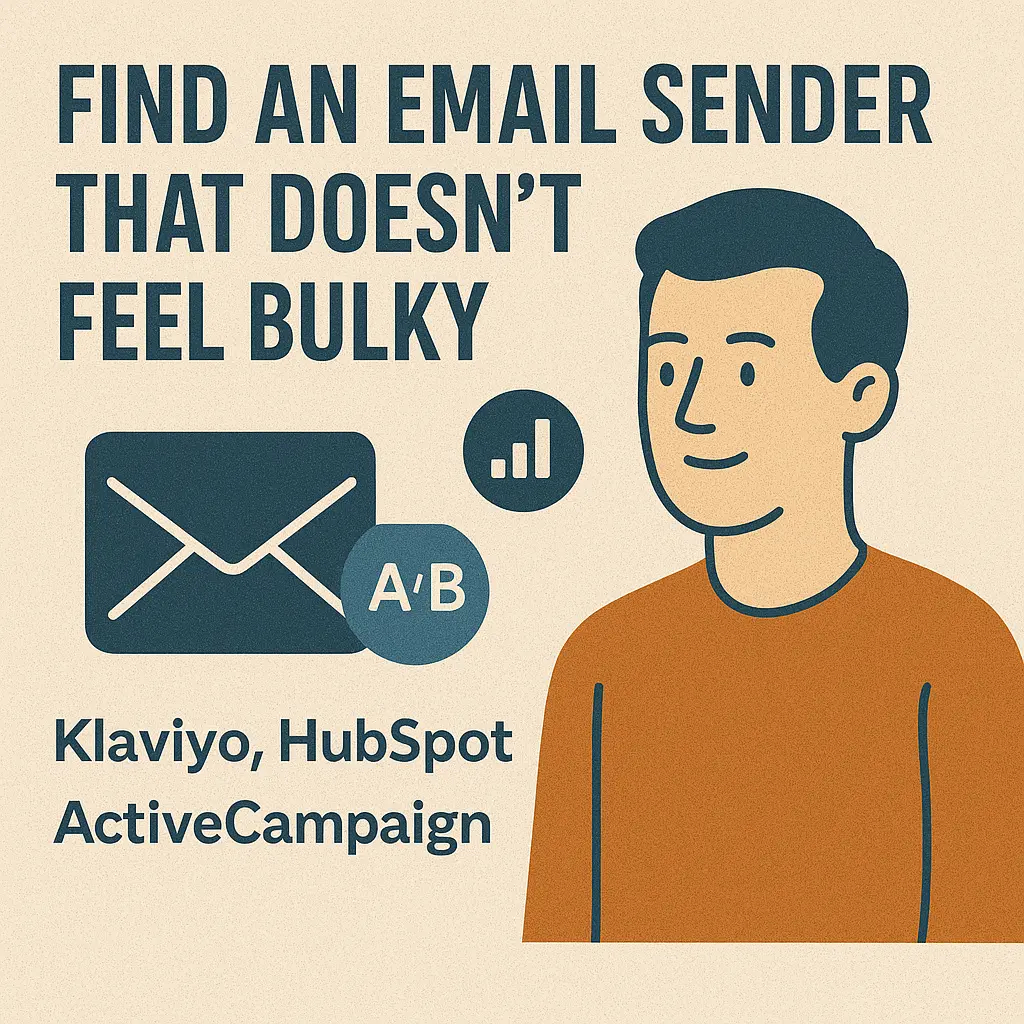
3. Leverage Email Marketing for Content Distribution
Email Marketing Strategies 2025 go far beyond traditional newsletters. Today, email is a powerful vehicle for distributing diverse content—blog posts, short-form videos, podcasts, and thought leadership pieces. By curating and delivering this content directly to your subscribers’ inboxes, you not only provide ongoing value but also drive consistent traffic back to your website or social platforms. This strategy helps build trust, foster engagement, and keep your brand top of mind in an increasingly competitive digital space.
- Weekly Round-ups: Summing up recent blog posts or industry news is an easy and informative way to keep up-to-date as part of effective Email Marketing Strategies 2025.
- Exclusive Previews: As part of effective Email Marketing Strategies 2025, share sneak peeks of forthcoming content or product launches to build anticipation among your audience. This approach keeps subscribers engaged, fosters curiosity, and increases the likelihood they’ll open future emails.
- Educational Resources: Provide educational guides, tutorials or case studies that offer value to your audience.
4. Think Like a Startup: Agility Drives Success
Email Marketing Strategies 2025 emphasize agility—especially for startups that thrive on rapid iteration. Establishing fast feedback loops by monitoring open and click rates within hours allows you to make real-time adjustments. Launch Minimum Viable Product (MVP) campaigns with targeted, timely CTAs and run A/B tests for subject lines or CTAs simultaneously within each sequence. This real-time responsiveness ensures your messaging is always optimized for targeting, timing, and authenticity—key ingredients for converting subscribers into loyal customers.
Agile Practices:
- Rapid Testing: Experiment with different subject lines, CTAs, and send times until you identify what resonates best with your audience—a core principle of effective Email Marketing Strategies 2025.
- Launch Iterative Campaigns: Make campaigns iteratively, allowing adjustments based on performance data.
- Real-Time Analytics: As part of effective Email Marketing Strategies 2025, take advantage of analytics tools to monitor campaign performance in real time and make data-driven decisions quickly, ensuring each email delivers maximum value and engagement.
5. Engage Your Audience
Email Marketing Strategies 2025 are evolving beyond static messages into fully immersive experiences. Make your email truly interactive by adding gamified labels and engaging elements—think “spin the wheel” reward emails, progress bars for achievement badges, or embedded trailers and previews. These tactics transform a simple inbox notification into an engaging experience that encourages clicks, increases retention, and boosts conversions. In 2025, interaction isn’t a luxury—it’s the standard for email success.
Interactive Features:
- Reward Systems: Establish loyalty or point systems that encourage repeat engagement with the target audience.
- Quizzes and Polls: Utilize interactive quizzes or polls to gather feedback and increase engagement with the content.
- Dynamic Content: Employ dynamic content blocks which adjust according to user preferences or behaviors.

6. Recognize Evolution in Email Marketing
As Email Marketing Strategies 2025 become more advanced, the role of email marketers has transformed significantly. Today’s professionals must go beyond crafting compelling copy—they must be strategists, data analysts, UX thinkers, and automation experts. Mastering these multidimensional skills is essential to deliver campaigns that are not only personalized and timely but also aligned with broader business goals. The future of email marketing belongs to those who can integrate strategy with technology seamlessly.
Essential Skills:
- Data Analysis: Being able to interpret analytics and make data-driven decisions.
- UX/UI Knowledge: Understanding user experience and interface design principles is critical.
- Automation Experience: Proficient at setting up and overseeing automated email workflows.
- Copywriting: Crafting engaging email content that drives action.
7. Integrate Google Analytics With Email Marketing in a Smarter Way
Use Google Analytics to track user behavior post-email engagement—an essential component of effective Email Marketing Strategies 2025. Implement UTM tags, funnel tracking, and behavior flow analysis to go beyond basic metrics like open rates and link clicks. This data-driven approach helps you understand the true impact of your campaigns by mapping how users interact with your site after engaging with your emails, ultimately leading to smarter, more personalized marketing decisions.
Advanced Tracking Techniques:
- UTM Parameters: Attach UTM parameters to your email links in order to monitor traffic sources and campaign success.
- Setting Goals in Google Analytics: Define specific goals within Google Analytics in order to measure conversions and other key actions.
- Behavior Flow Analysis: Assess how users navigate your site after clicking through from an email link to identify drop-off points and opportunities for improvement. As part of effective Email Marketing Strategies 2025, tracking post-click behavior helps marketers refine landing pages, CTAs, and overall campaign flow—ensuring a smoother customer journey and higher conversion rates.
8. Focus on Inbox Experience Not Open Rates
People tend to scan emails quickly rather than read them word-for-word, which is why successful Email Marketing Strategies 2025 focus on scannable design. Ensure your emails feature clear headers, bullet points, mobile-responsive layouts, and CTAs placed above the fold. Even small elements like unsubscribe links or creative sign-offs at the bottom can leave a lasting impression or drive additional clicks—helping your brand stand out in an overcrowded inbox.
Design Best Practices: Mobile Optimization: Make sure your emails are responsive and display properly on all devices.
Create an Effective Hierarchy: Make your content easily scannable by including headings, subheadings and bullet points in your text.
Brand Consistency: Establish and uphold brand consistency through using consistent fonts, colors and logos to reinforce brand identity.
Accessible Design: When designing for accessibility, include alt text for images and make sure the color contrast meets accessibility standards.
9. Segment Smarter, Not More
Proper segmentation means going beyond demographics alone. As part of effective Email Marketing Strategies 2025, smart segmentation now focuses on behaviors (what have they clicked on?), engagement levels (have they dropped off?), and purchase stages (first-time buyer vs. loyal customer). Smarter targeting leads to more relevant messages—reducing intrusiveness while increasing conversions and long-term engagement.
Segmentation Strategies:
- Behavioral Segmentation: Group subscribers according to how they engage with your emails and website.
- Engagement Levels: Target inactive subscribers through re-engagement campaigns.
- Lifecycle Stages: Tailor messages to subscribers at various stages of their customer journey, from awareness to loyalty.
10. Create an Appealing Sign-Up Process
Your mailing list sign-up form should serve as the gateway to your email community, making joining feel like a valuable opportunity rather than a chore. As part of Email Marketing Strategies 2025, it’s essential to incentivize sign-ups by offering exclusive guides, early-bird offers, or access to free tools and templates. Use social proof—like “Join 15,000+ marketers who enjoy our weekly tips”—to make the sign-up process feel more like joining a thriving community than submitting a form.
Effective Sign-Up Techniques:
- Communicate Value Proposition Clearly: Outline the advantages of subscribing to your email list in an engaging and concise way.
- Minimal Fields: Keep your sign-up form as straightforward and unobtrusive as possible by collecting only essential information.
- Incentive Programs: Provide incentives such as discounts, freebies or exclusive content in order to encourage signups.
- Social Proof: Display testimonials or the number of current subscribers as social proof to build trust with potential subscribers.
Your Emails Should Feel Like a Present, Not an Advertisement
Email inboxes in 2025 are more crowded than ever. With a constant influx of promotional messages, updates, and alerts from countless brands, cutting through the noise takes more than just catchy subject lines or eye-catching designs. To stay relevant, visible, and effective, your emails need to offer real value, respect the reader’s time, and motivate them to take meaningful action.
Whether you’re a startup leveraging bulk email platforms to connect with early adopters or a seasoned marketer trying to re-engage cold leads with interactive, personalized content, the stakes have never been higher. Each email you send is a chance to build trust, showcase your credibility, and deepen your relationship with your audience. But it’s also a gamble: if your content comes off as generic, pushy, irrelevant, or just a waste of time, you risk losing that trust and pushing your audience toward disengagement—or worse, the dreaded unsubscribe button.
In this landscape, having a solid strategy is crucial. You need to look beyond just sending a lot of emails and focus on your intent. Is your message customized for the recipient’s current journey? Does it tackle their pain points or provide a timely solution? Are you making it easy for them to take the next step—whether that’s clicking a link, replying, or making a purchase?
Interactive emails, dynamic content, behavioral segmentation, and responsive design have become essential tools for success in modern email marketing. The brands that excel in today’s inbox are the ones that view each message as a personalized experience rather than just a broadcast—one that adds value with every open.
Keep in mind: every email reflects your brand. It’s not just about pushing products or hitting metrics—it’s about crafting lasting impressions that foster loyalty, trust, and long-term engagement. Send with intention, write with empathy, and design with the user in mind. In the bustling inboxes of today, only the truly helpful messages will be read—and remembered.
If you want to know about Ai disrupting Email, simply click on it.
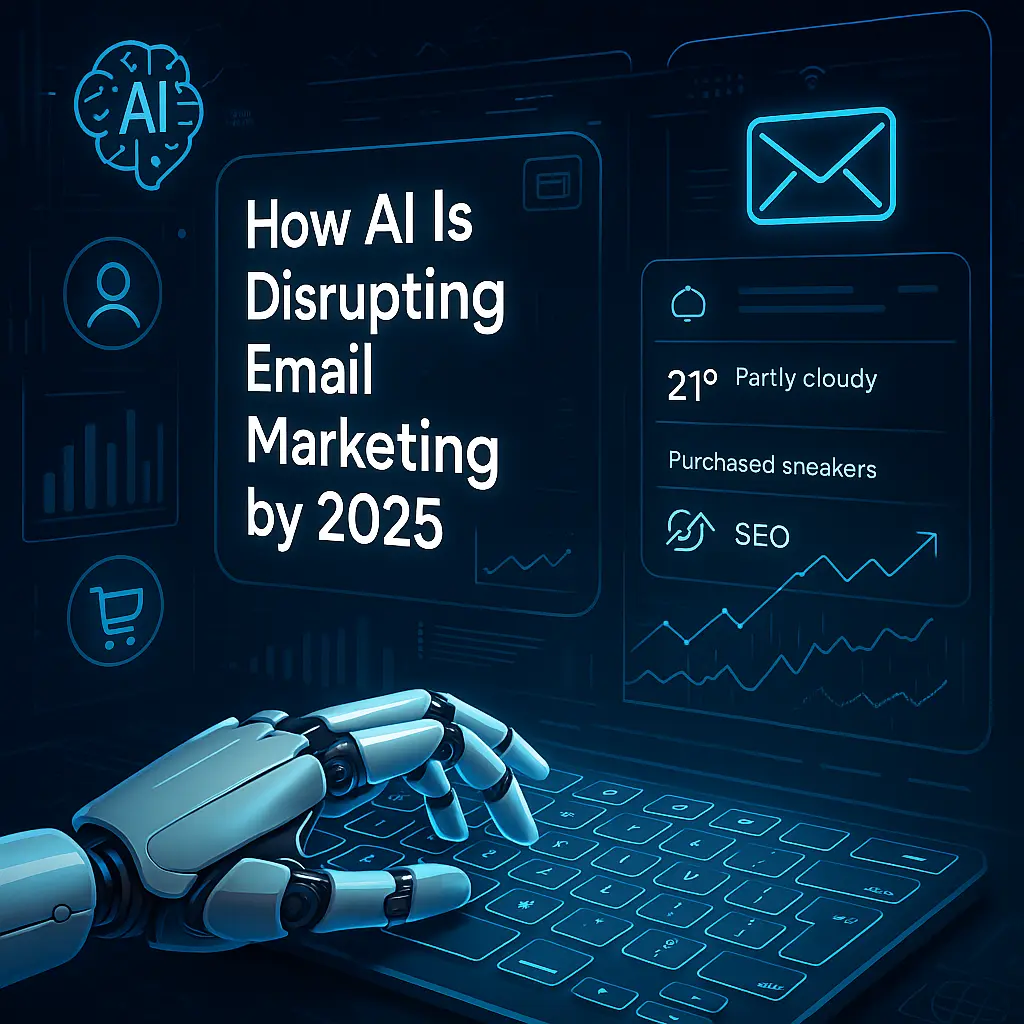
Are You Ready to Increase Conversion Rates Through Emails?
Need help setting up high-converting flows, revamping your newsletter or devising an effective segmentation strategy? Reach out. Let’s talk.
By Junaid Imdad, Blogger & Digital Experience Strategist
Connect with me on LinkedIn

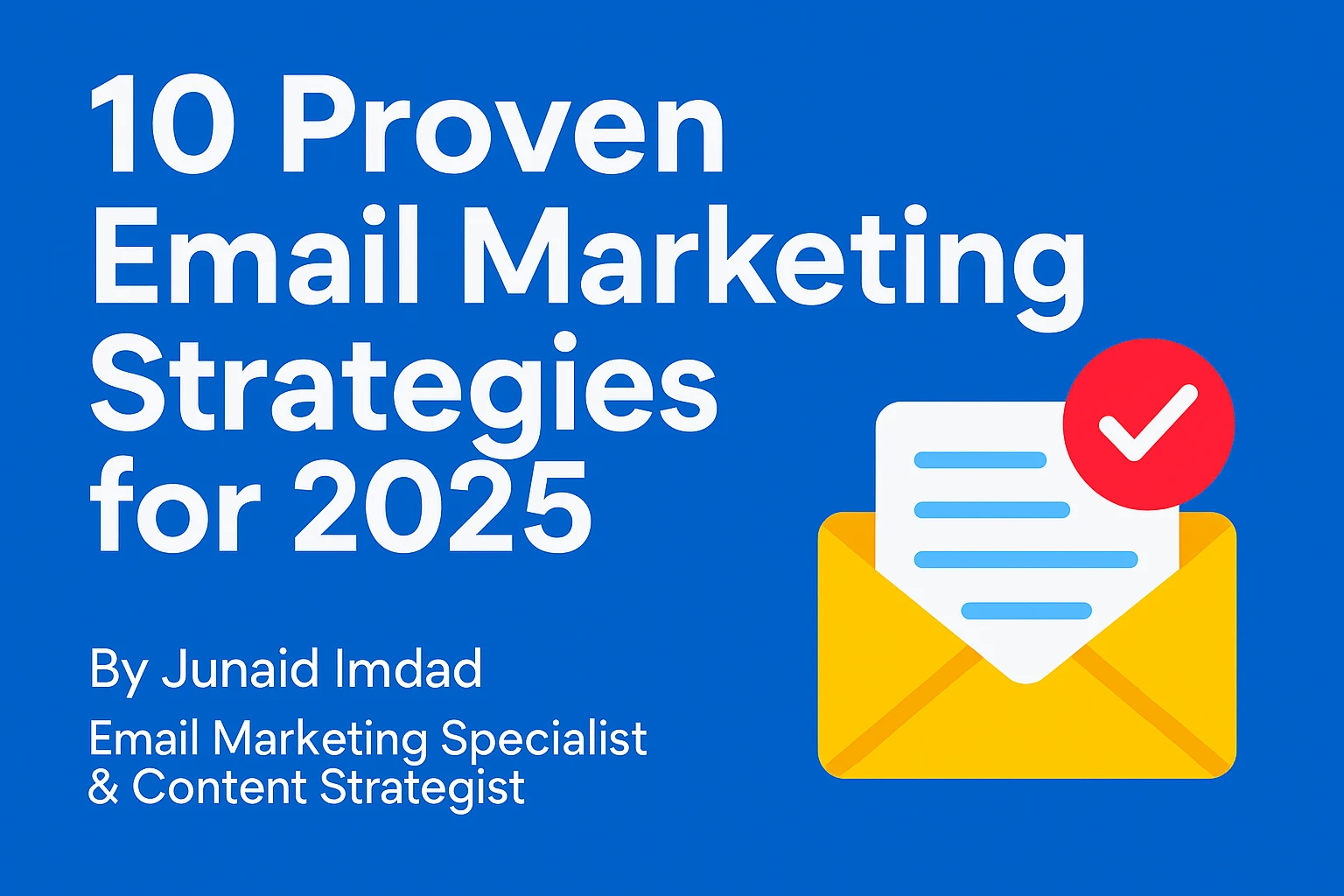
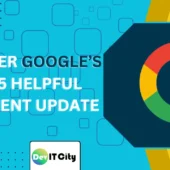
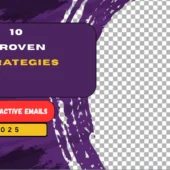
From Static to Interactive: Design Emails That Convert - Devitcity
[…] Interactive Emails Are More Successful Allow me to tell a short […]
The Complete Digital Growth Plan for Startups in 2025
[…] Learn more about email marketing strategies for 2025. […]